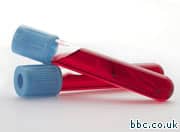A blood test used to diagnose genetic abnormalities at an early stage in pregnancy could be leading to sex-selective abortions, according to a Government report.
The Daily Telegraph highlighted a recent review by the Department of Health which found that Non Invasive Pre-natal Testing (NIPT) is being used to determine a baby’s sex, and called for its use to be monitored.
In February MPs defeated a motion to make sex-selective abortions illegal under UK law.
Sex-selective abortion
The review, part of a wider assessment of abortion on the grounds of sex, notes that the tests have become the “main technological development” enabling women to know the sex of their child.
It states that the emergence of NIPT “underlines the need for us to continue to monitor birth ratios and abortions by ethnicity to assess the impact of these tests, particularly if they become more widely available”.
It also notes that ultrasound scans are “becoming increasingly reliable” at determining the sex of a baby at an early stage.
Genetic
NIPT is available on the NHS and at private clinics, where mothers can expect to pay around £300.
According to the review, they can be carried out from as early as seven weeks into pregnancy.
The Telegraph article describes one doctor who runs a clinic in York. He said that half of the women he has tested in the last year said they wished to know the sex of the baby, as well as if there are any genetic abnormalities.
Deplorable
Last week, a doctor who was filmed agreeing to an abortion on the grounds of a baby’s sex and lying to cover it up was suspended for just three months.
Dr Palaniappan Rajmohan, who worked in a Birmingham abortion clinic, was found out after an undercover investigation by The Daily Telegraph.
A panel convened by the General Medical Council said that his actions had “brought the medical profession into disrepute and would be considered deplorable by fellow practitioners”.
Rejected
In February, MPs rejected the opportunity to make sex-selective abortion explicitly illegal when they defeated an amendment from Fiona Bruce.
MPs voted to reject Mrs Bruce’s bid by 292 to 201. The Government allowed a free vote while Labour MPs were directed to oppose the amendment.

